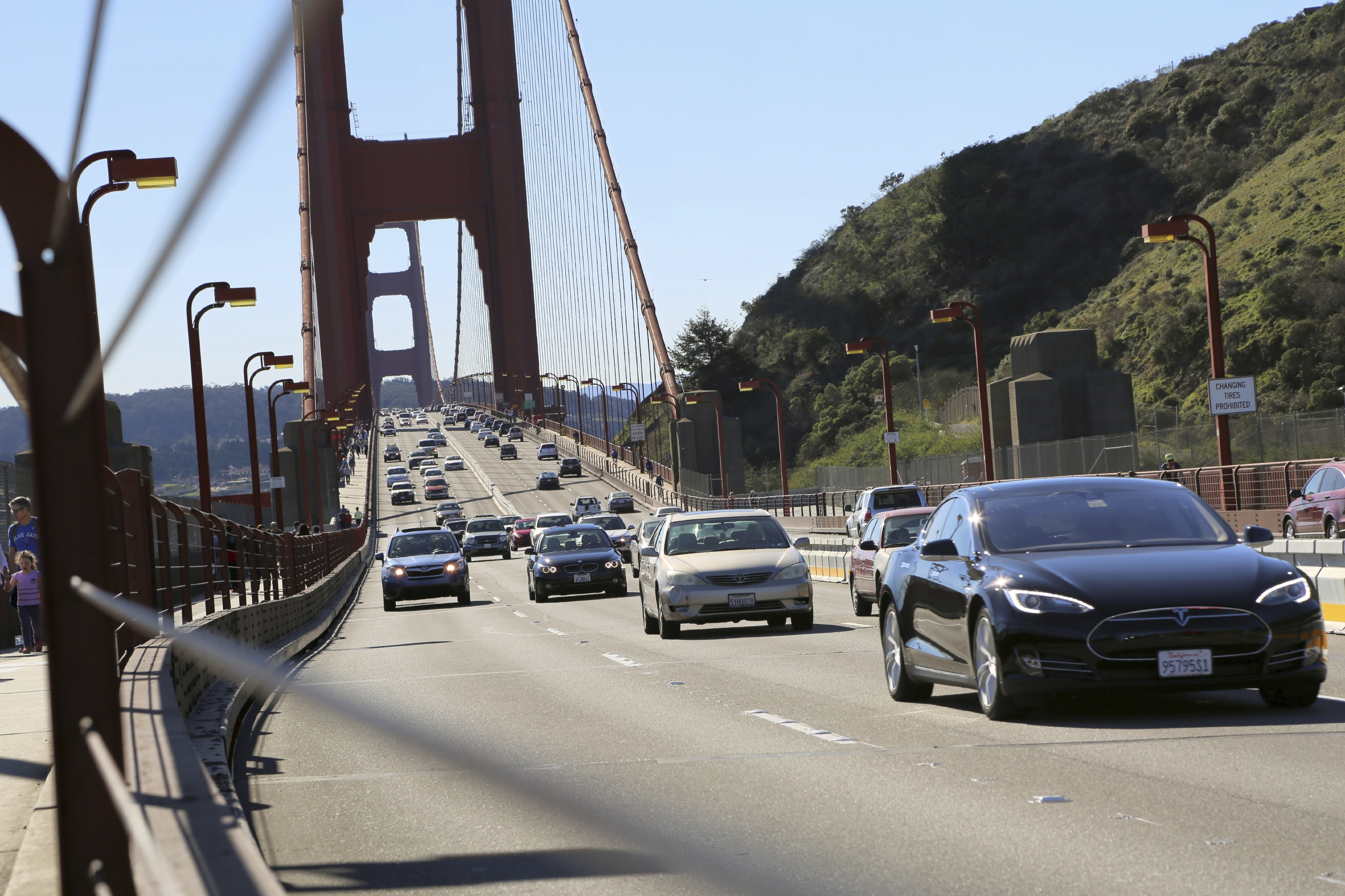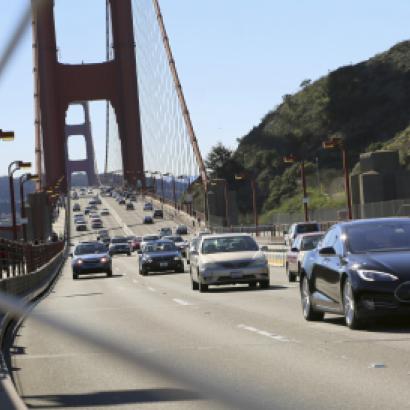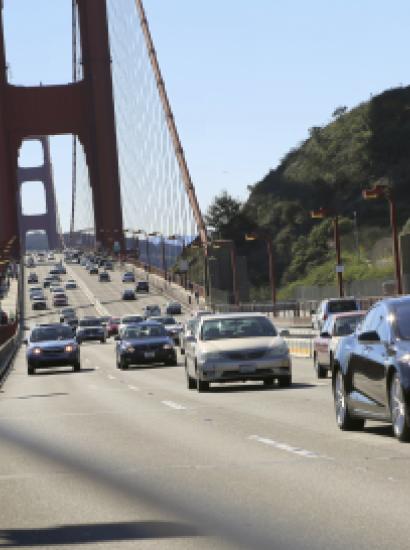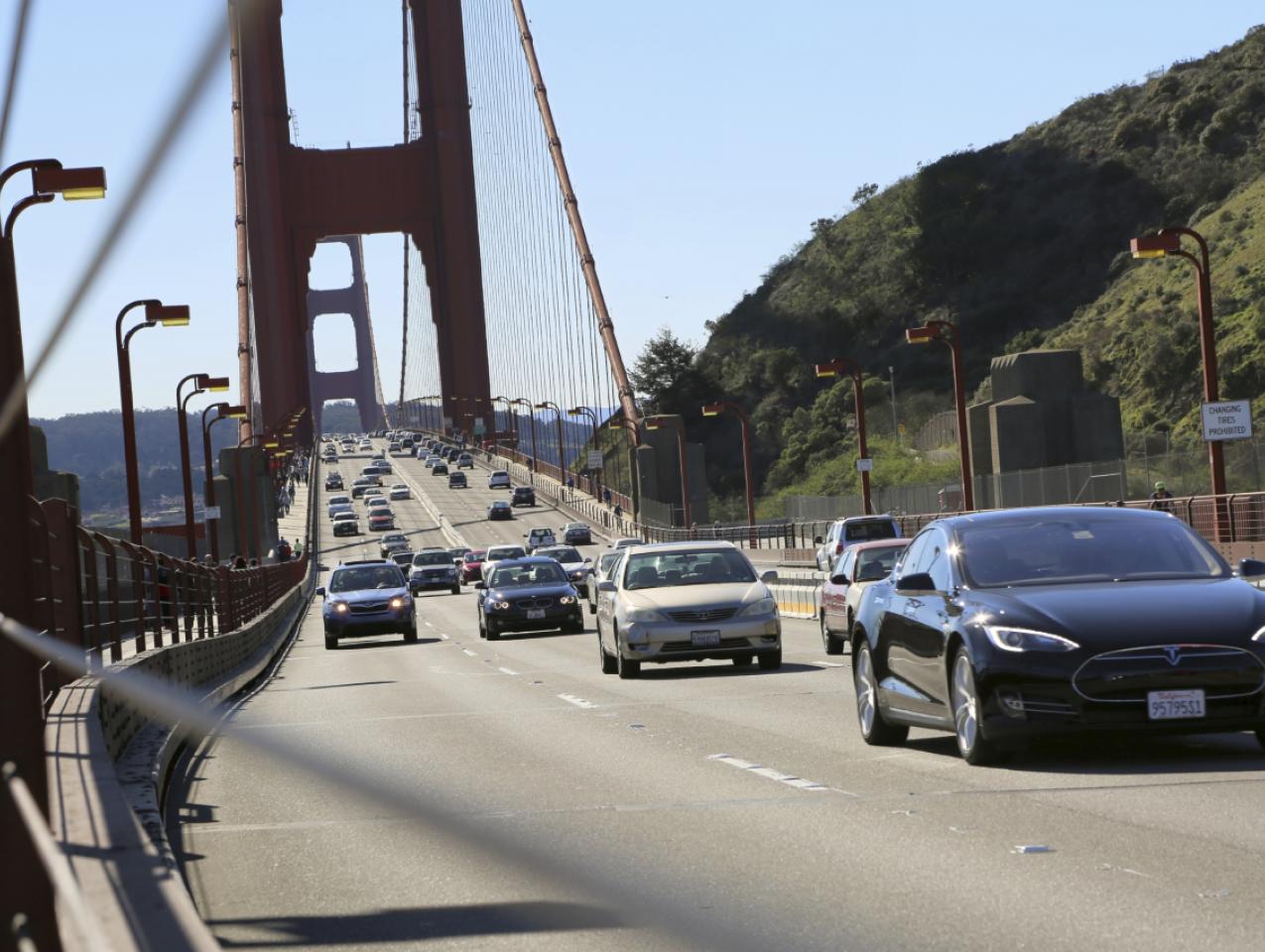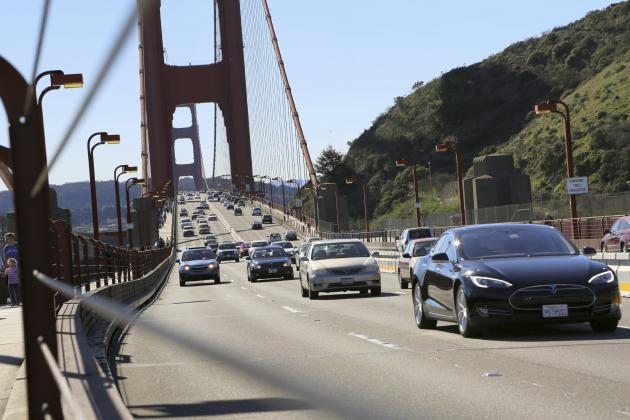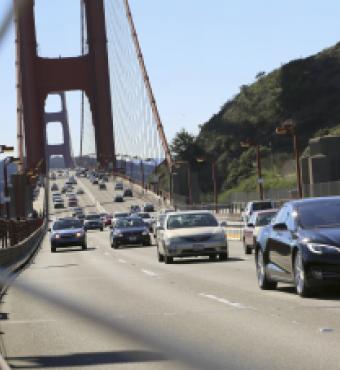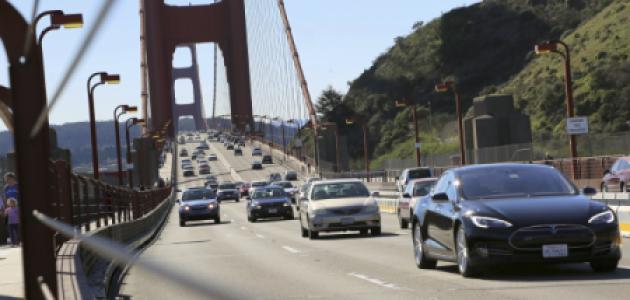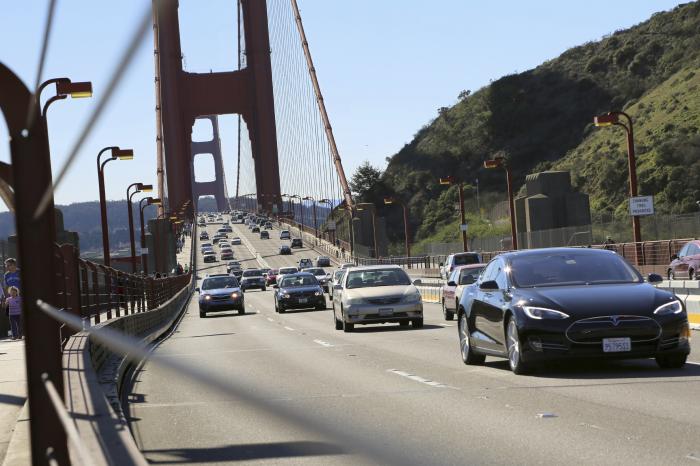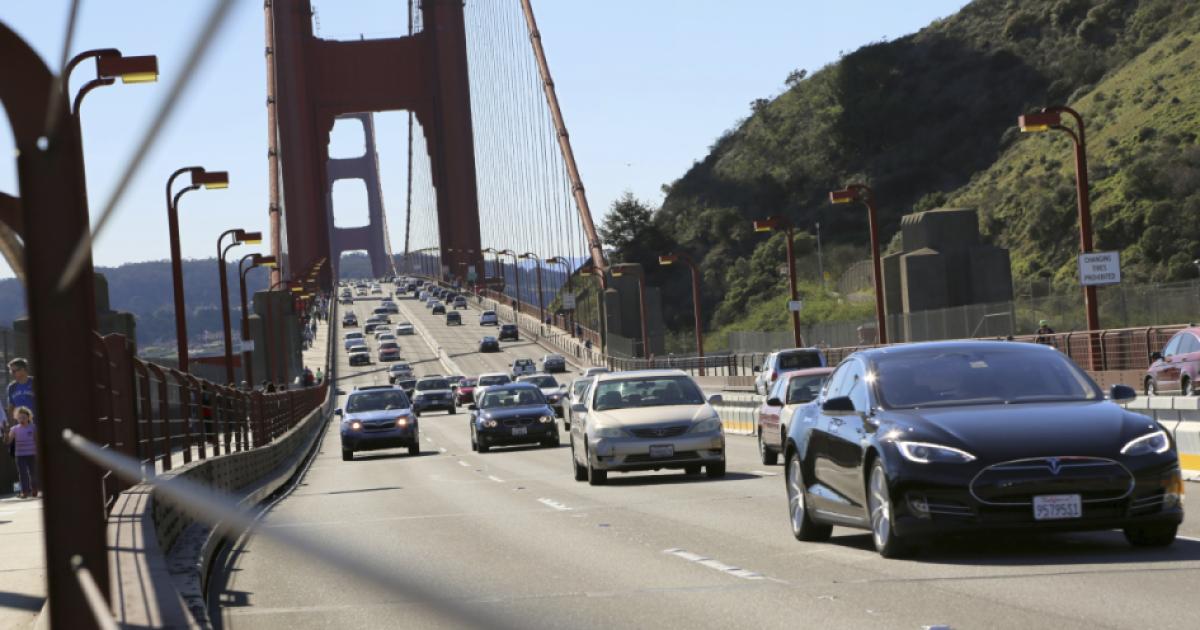- Economics
- Law & Policy
- Regulation & Property Rights
- Budget & Spending
- Politics, Institutions, and Public Opinion
- Campaigns & Elections
- State & Local
- California
California’s Proposition 6, if approved by voters, will repeal the recently imposed gas and car tax hikes.
There are three simple reasons to vote yes.
First, the regressive gas and car tax hikes hurt California’s working families at a time when the cost of living is already unsustainable for many.
Second, a gas tax hike is not needed to fix our roads—we simply need to stop the politicians from raiding, diverting, and wasting the existing gas tax funds.
Third, a victory for Proposition 6 will be a political earthquake that could lead to a shift in political dynamics in our state that is dominated by one political party.
California is on the wrong track when it comes to our cost-of-living. California’s poverty rate is 20.6 percent, the highest in the nation. In a recent poll, 47 percent of Californians considered themselves “working poor,” which reflects their personal view of the condition of their finances.
By virtually every measure, things cost more in California than other states. We pay more for housing, more for energy, more for water, and more for gas. These higher costs for the basic building blocks of family living or business operations results in higher costs for the many other goods and services we consume.
Instead of addressing the high cost-of-living in these areas, state politicians are adding to the burden.
In fact, every year we see more taxes, mandates and fees added to our cost of living by a super-majority in Sacramento that thinks small businesses and working families can simply absorb the costs for whatever greater good the politicians claim will be served.
The gas and car tax hikes the State Legislature enacted last year and signed by Governor Jerry Brown are a perfect example of this.
As of August 2018, the California premium above the average for the United States other than California ($2.79) stands at 82.0 cents, a 29.4 percent cost-of-living increased difference. Californians pay $1.06 a gallon more than consumers in Alabama, the state with the lowest price.
This year Californians will pay nearly $1 more per gallon because of taxes, fees, and other government mandates. By 2030, it will be closer to $2—that’s $40 extra each time you fill up your car (here’s a AAA map showing gas prices nationwide).
With the new gas tax and car tax hikes in place, an “average” two-car family will pay at least $1,500 in taxes a year. When adjusting for the “average” tax rate, a two-car “average” family must earn almost $2000 in pre-tax earnings just to pay their California car and gas taxes.
Using the most conservative modeling, the latest gas tax and car tax hikes alone will force a family of four to pay anywhere between roughly $650 and $800 more in tax and living expenses—depending on commute and consumption of goods and services impacted by fuel prices.
A “yes” vote on Proposition 6 would immediately reverse these costs and provide working families with much-needed breathing room when it comes to our cost of living.
Let’s now consider how our existing gas tax funds are being spent and whether we are getting a good return on our investment. The answer is: no.
As California has seen in the past, the gas tax money is largely diverted away from roads, and what little funding that is provided to roads is riddled with waste, fraud, and abuse. State Senator John Moorlach, a Southern California Republican, released an independent analysis of Caltrans’ budget showing that only 20 percent of the gas tax funds were spent anywhere near roads.
Where do the politicians divert the gas tax money to? The funding has been diverted to cover budget deficits so politicians can continue to spend in other areas, like higher salaries and pensions for state workers. For example, bus drivers in the Bay Area are earning six figures annually—with one bus driver earning $227,516 last year alone! In Orange County, they paid over $6,500 each for five campaign-like signs to place on the side of the road to inform drivers “Your Tax Dollars at Work Rebuilding California.”
Indeed.
Of the funds actually spent on infrastructure, the majority of funds get diverted from roads to transit buses, light rail projects, bike lanes (to replace roads), and even park land acquisition.
Our existing transportation agencies are riddled with waste and inefficiency. A study by the Reason Foundation shows that for every $1 spent on average nationally to maintain or repair a mile of roadway, California spends $4.7 dollars for the same mile—a massive waste inflation factor!
Politicians will try to mislead you by bringing up June’s voter-approved Proposition 69. Written entirely by politicians themselves, it is not the “lockbox” they claim it is.
First, Proposition 69 does not cover all of the gas tax and transportation taxes we have to pay. Second, Proposition 69 contained zero accountability on where the gas funds will be spent—transit, bike lanes, parks, rail projects, etc. could receive all the funds instead of roads. Finally, the gas tax measure is specifically written to allow the governor to transfer the funds to cover General Fund shortfalls without a vote of the Legislature or the people.
The same coalition that Proposition 6 has released a better plan to fix our roads and has filed a ballot initiative for the 2020 ballot to approve this plan.
The better alternative plan would mandate that 100 percent of the previous gas tax be spent entirely on roads. It also proposes earmarking the sales tax on cars to regional, intermodal transportation projects. Finally, it would impose significant accountability, efficiency, and transparency reforms to make sure our funds are effectively spent.
A final reason to vote in favor of Proposition 6 involves changing our state’s dysfunctional political system.
California is a “deep-blue” state politically. Sadly, the California Republican Party has been largely ineffective as a true opposition party—lacking the courage to offer bold, vibrant alternatives to the Democrats and struggling with a tarnished brand.
The way that Proposition 6 came about—as a non-partisan citizen revolt powered by Democrats, Independents, and Republicans—could offer a model for fixing various problems in our state. It could also provide a much-needed “check and balance” on unbridled use of power by an unchecked “Super-Majority Party” that dominates the proceedings in the state capitol.
Voter approval of Proposition 6 could frighten the Super-Majority Party enough to cause it to be more cautious on radical and extreme policies in the future. Moreover, a decisive win for Proposition 6 could provide momentum for another round of ballot initiatives to tackle reform in public safety, education, infrastructure, and pension reform.
In short, a “yes” vote on Proposition 6 will provide immediate tax relief to working families to help them with their cost of living. It would send a message to out-of-touch politicians that we must make California more affordable, not less affordable. It would put us on the path to implementing a better alternative plan to fix our roads without a tax hike.
It could be the starting point for reshaping our state’s one-sided politics.







